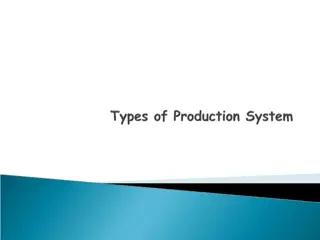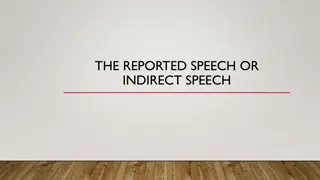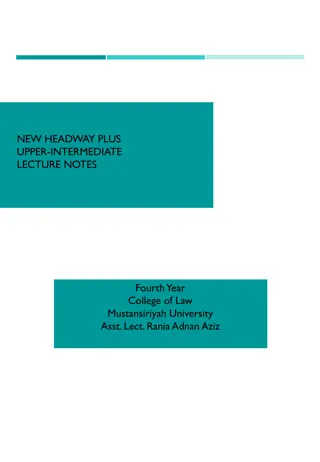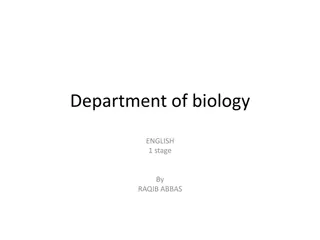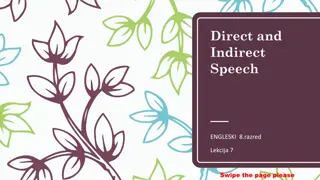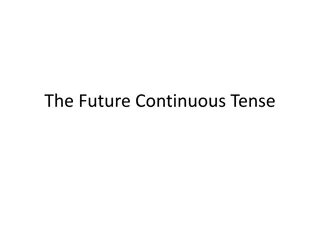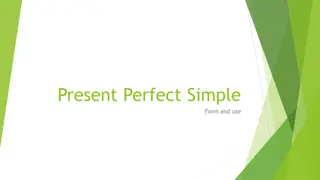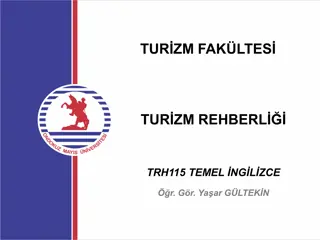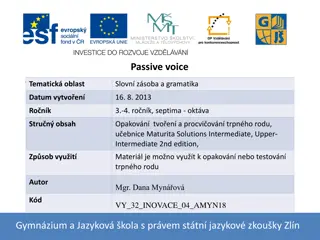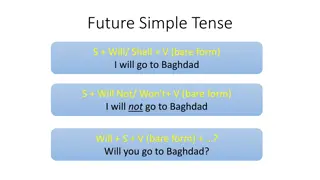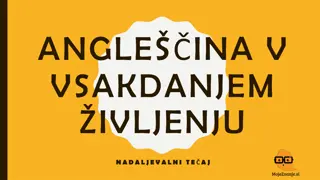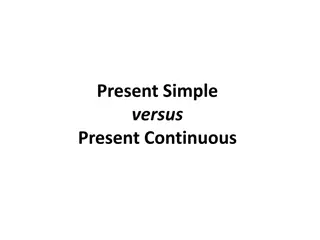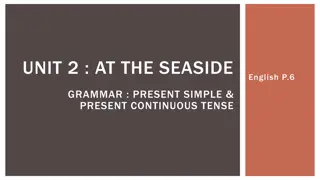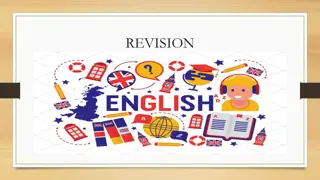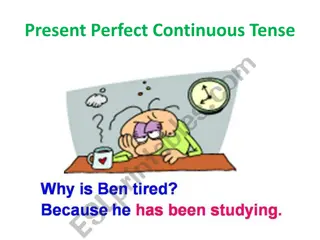Present Continuous and Simple Present for Future Time
Learn how to use the present continuous and simple present tenses to talk about future events with clarity. Explore examples and understand the correct structures for statements and questions in English grammar.
Download Presentation

Please find below an Image/Link to download the presentation.
The content on the website is provided AS IS for your information and personal use only. It may not be sold, licensed, or shared on other websites without obtaining consent from the author.If you encounter any issues during the download, it is possible that the publisher has removed the file from their server.
You are allowed to download the files provided on this website for personal or commercial use, subject to the condition that they are used lawfully. All files are the property of their respective owners.
The content on the website is provided AS IS for your information and personal use only. It may not be sold, licensed, or shared on other websites without obtaining consent from the author.
E N D
Presentation Transcript
Form: Be+ V+ ing - For planned event or for definite intention, the present continuous may indicate future time. - The use of the present continuous is common with a future time expression like tonight, tomorrow, next week, next month, next year tonight, tomorrow, next week, next month, next year.
Statements: These stores are moving to Al-Tahlia street next month. The town council isn t meeting next week.
Questions: The be form of the verb( is/ are/ am) comes before the subject. Where are we meeting tonight? Aren t you going downtown this weekend?
Form: the simple form of the verb ( infinitive) But if the subject is singular we add s to the verb. The simple present can express future time in sentences about scheduled events. A time expression or the context makes the future time clear. Only a few verbs are used this way. These include: open, close, begin, end, start, finish, arrive, leave, come and return open, close, begin, end, start, finish, arrive, leave, come and return.
Statements: The program begins at 8:00 I leave town on Friday. His train arrives at 3:00. The museum opens at 9:00 tomorrow.
Questions: The do form of the verb ( do/does) comes before the subject. When does the program begin? Does the museum open at the usual time tomorrow? When do the lectures start tomorrow?



